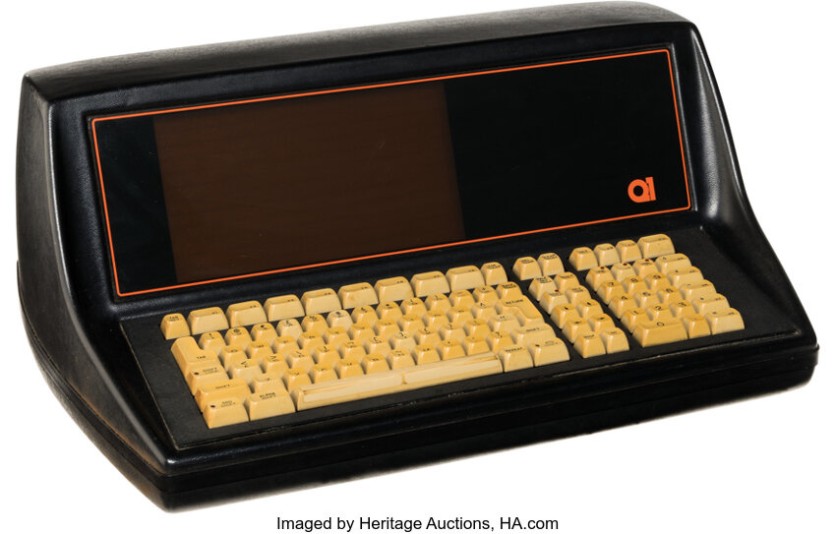The world's first desktop microcomputer, the Q1 model, is being auctioned at Heritage Auctions. Cleaners discovered this significant artifact in storage boxes at Kingston University in London, which caused a buzz in the tech community.
Q1: World's First Desktop Microcomputer Is Up for Auction
The auction listing describes the Q1 Lite as a rare and valuable piece of computing history. This model, a streamlined version of the original Q1, boasts an orange screen and an integrated keyboard, blending aesthetics and functionality in a compact design ahead of its time.
The Q1 Lite was powered by the Intel 8008 processor and relied on bulkier transistor-based TTL logic circuits. This shift to a microprocessor-based architecture allowed the Q1 to offer performance and flexibility typically associated with larger systems.
The introduction of the Q1 is crucial in computing, showcasing the potential of microcomputers to revolutionize both professional and personal computing environments.
According to Heritage Auctions, the Q1 Lite remains in good condition for its age despite some discoloration on the keyboard and light scuffing on the casing.
The unit, sold as-is without hookups for testing, features a Q1 Europe Ltd. warranty card attached to the back, adding to its provenance. In addition to this model, the auction includes the original Q1 with a built-in printer and a standalone printer for the Q1 Lite.
This auction provides a unique opportunity for vintage PC collectors to acquire these significant pieces of technological history. The Q1 collection is currently undergoing online bidding, with a live auction set for May 24.
Read also: Star64 RISC-V Single-Board Computer Is a ARM-Based Pi Alternative: Here's What You Should Know

Unearthing Q1 Desktop Models
Tech Times previously reported that two of the world's earliest desktop microcomputers, the Q1 models, resurfaced in February from storage at Kingston University, where they had been forgotten.
The discovery has shed light on the early years of computing, leading to their public display at Kingston University as part of an exhibition titled "Creating the Everything Device."
This exhibition highlights the evolution of computing from the 1970s to the 1990s, emphasizing Q1's role in this history. Paul Neve, a senior lecturer and course leader in computer science at Kingston University, expressed his excitement at showcasing these rare relics.
He highlighted their influential impact on the evolution of contemporary computing, noting that early computer visionaries paved the way for today's technologies, including personal computers and smartphones.
Neve cited the importance of the early pioneers of computing from the 1970s and 1980s, who laid the foundation for modern devices. He noted that the advancements made by companies like Q1 Corporation, Sinclair, and Acorn were crucial to the development of today's computing technologies.
Without these devices, no personal computers like Macs, or Apple, and even Android phones would exist. The auction of the Q1 microcomputer and its variants offers a unique glimpse into the early days of computing, celebrating the technological milestones that have shaped the digital world today.
Related Article : Microsoft Estimates Quantum Computer Capable of 10 to 100 Terabits Per Second Would Make the Tech Easier to Use

ⓒ 2025 TECHTIMES.com All rights reserved. Do not reproduce without permission.




